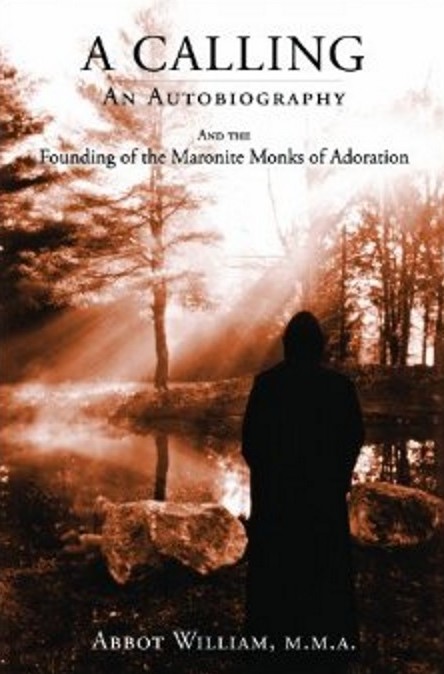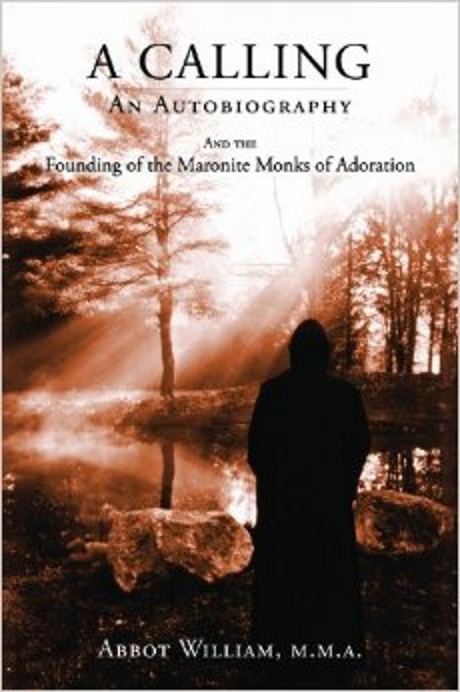The interior life, the practice of virtues, fidelity to prayer, and a structured manner of religious living….It was quite at variance with the updated self-expression of psychology and sociology…
…the underlying issue is that one finds in the Church in general, and in the universities and religious communities especially, a lack of spiritual life, spiritual training, development of the interior life, habits of prayer, and a spirituality of acquiring the virtues.
Two quotes from Abbot William regarding his observation of the Church after Vatican II. He was ordained a priest in 1961. I admire his insight on many levels. First it must be noted, he remained obedient to others, feeling an outsider within his dedication and devotion to prayer, the Eucharist, and the interior life. He did not argue and debate with others. Events were unsettling, yet he stayed committed to his path of orthodox contemplation through practice rather than discussion or other exterior means of expression. I relate even further to his mindset as he steers away from a traditionalist position centered in preserving Church ways before Vatican II. He finds fault with an elevation of the Latin mass, penetratingly calling into question those needing to declare the Latin mass superior. Scrupulosity, a dependence upon formality, structure, and ritual are not Abbot William’s way. His way is one of prayer, remaining hidden within the Church, always driving deeper upon the interior path.
The sex scandals of the Church are probed for root causes, conclusions resting primarily upon the lack of an interior life, an authentic prayer life, throughout individuals within the Church. Exterior and experimental ways called forth as modern and relevant. Everything of human effort. It was only natural horrible consequences would evolve. Reflecting upon my Cleveland recovery experience, an experience that ignited a miracle, I am able to identify the same lacking. If one never develops a sound prayer life, one has no means of accessing God. In truth, one is making everything up. To a certain degree, quality does not matter. Whether conducted intelligently and sincerely, or selfishly and ignorantly, it is still of human conception, fated for imperfection. As I increase my social life, I comprehend the need to protect my interior life. It is my source of grace and must be protected from those solely functioning upon the foundation of self-will. Even those dedicating and devoting their lives to the Church can be destructive or demeaning to a genuine interior life. I am polite and friendly, always willing to remain hidden, willing to be perceived immersed within faults, able to focus away from reputation. I am content being left alone. My spiritual life is not lived based upon exterior deeds, chatter and relationships. I reflect upon John the Hermit, a man possessing an advanced interior life, yet I realize there is nothing truly gained from furthering interaction with him. Talking about, studying, or writing about the interior life does not develop a hearty interior Presence. Ann was fond of watching television evangelist. In truth and respect, such an approach of talking and listening, being right and making excellent points, has nothing to offer to the deeper life of a contemplative. Grace moves about in mysterious ways. There is a delicate balance.
The fellowship I desire, first arising within families and the concept of families—love, vulnerability, permanency, commitment, strength, respect–is not the basis of my spiritual life, yet it is essential to inspiring, bringing joy and support to my life. I absolutely shun the idea of sharing with those perceiving themselves as spiritually advanced, nor am I interested in the slightest those recognizing themselves as spiritually superior. Those who demand to derive their spiritual advancement through interactions with others will not darken my doorway. Fellowship is not to be exploited for self-advancement. The spiritual life is not lived by defeating and competing with others. People are not to be used. Those trying to be, rather than being, prove a consternation. Intimately, I welcome those warm in companionship, accepting imperfections, befriending not delusion, rejecting spiritual authority and vocalized expertise. A new maturity is demanded, light and lacking preferred, from those I allow into my inner-circle. Those practicing, harvesting, and nurturing the negating process I perceive transforming my own life. I am reminded of an elderly Trappist monk who once said to me that in honesty he was done with reading, including scripture. Daily mass provided sufficient words and thoughts. He had read enough books, as well as having heard enough advice and spiritual wisdom. He preferred nothing, simple conversation of warmth and friendliness, moments of delicacy away from prayer. It was enough. A lack of words preferred to the wisest of words. To be honest, right now few knock upon my door. Quickly coming to mind, Father Roger always stands posed for entrance. I am finding myself alone with God. I recall the entrance at the Abbey of Gethsemane in Kentucky, the words ‘God Alone’ welcoming visitors.
Along this avenue of thought, yesterday’s bedside vigil proves insightful. It turned into an extremely social event. I was introduced and reacquainted with many from the Hospice, a social worker from the facility, and the wife of the patient. I sense the Hospice experience broadening in regards to my reputation. They seem to be taking interest in me. Tomorrow I am asked to speak during a training session for new volunteers. I welcome the opportunities, while interiorly entrenching caution. The bedside vigil involved a woman from my training, Sue, a woman self-perceived and organizationally-perceived as a leading volunteer. Her distinct character is ubiquitous throughout Hospice activities. A funny incident occurred yesterday. The wife of the patient, a charming talkative woman, instantly disarming with her trust and vulnerability, arrived by her husband’s side. First, she delivered a nicely packaged large lunch to the cohabitant of her husband’s room. The man greedily accepted the food, remarking about the excellence of the woman’s cooking. The woman was distraught because the Hospice volunteer who drove her to the facility left her walker at her home. She worried someone would steal the walker, or the garbage man would take it. It was garbage day. I assured her that I could not imagine someone stealing a walker. She remained nervous. She spoke to me about her husband, showing me photos from the sixties and seventies. In the photos, she was a remarkably attractive woman, and her Jewish husband appeared full of character and vigor. They were an impressionable young couple, two who appeared to be fun at a party. He prided himself on his baseball and boxing skills, manly and tough looking in the photos–a stark opposition to the frail emaciated man reposing unresponsive next to us. I was startled when I chuckled about him being a boxer and she meekly responded, ‘yes he liked to box and many a times he practiced on me’. There was a sadness within her love. As we sat familiarizing ourselves with one another, in walked Sue with the woman’s walker. The talking and socializing increased as she arrived. The woman brings an air of expression and exterior activity to moments. Overall, I perceive the approach is not my approach to death. There is a concentration upon conversing as if everything is okay. Death is simply another aspect of life. Everything will be handled responsibly, efficiently, while exteriorly an easy going extremely friendly atmosphere is established. I approach matters more intimately, seeking the stark reality death is extremely different than all things encountered throughout life. Singular and private for the one enduring. It is terrifying, awe-inspiring, a grace abundant happenstance of divine integrity. The seriousness of death must be addressed within prayer, silence, and respect. Again, if one does not have an advanced interior life proper respect is difficult to render.
Enough. I am spending too much time upon this post. It is done!





Recent Comments